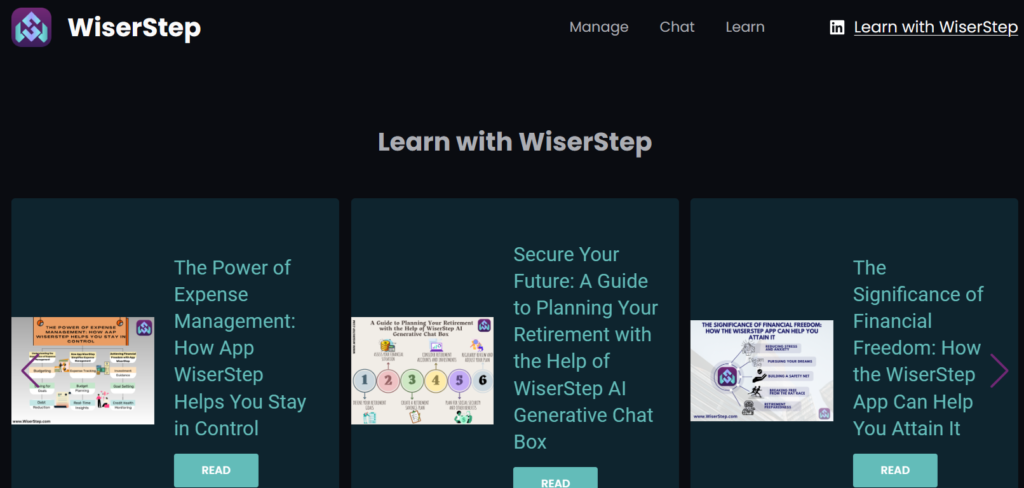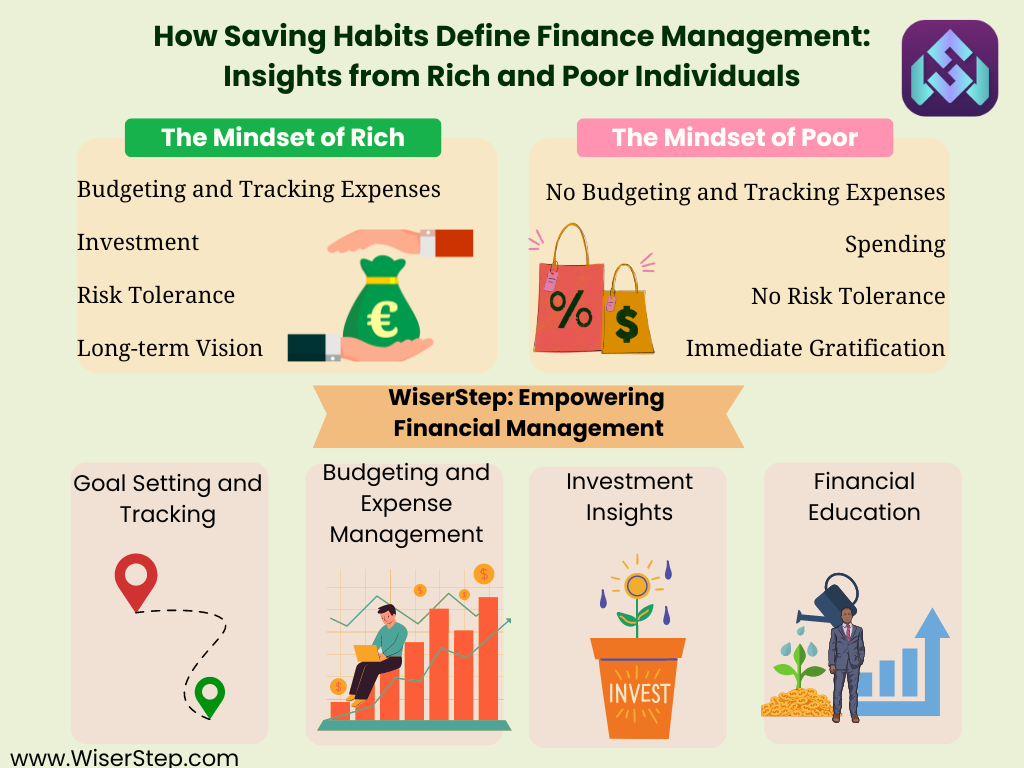Financial management is a crucial aspect of everyone’s life, irrespective of their economic status. However, the way people handle their finances can vary significantly depending on their saving habits and mindset. This blog delves into the differences between the saving habits of rich and poor individuals and how these habits play a vital role in shaping their overall financial management. Additionally, we’ll explore how the financial management app, WiserStep, has proven to be a valuable tool for both groups in enhancing their financial well-being.
The Mindset of Rich vs. Poor in Saving Habits
Long-term Vision vs. Immediate Gratification: One of the fundamental differences between the saving habits of the rich and the poor is their approach to money. Wealthy individuals often have a long-term vision and prioritize saving for their future needs and aspirations. They understand the importance of delayed gratification, allowing them to invest wisely and reap greater benefits in the long run. In contrast, poor individuals may succumb to immediate gratification, spending money on non-essential items without considering the consequences on their financial stability.
Budgeting and Tracking Expenses
Wealthy individuals are more likely to create and follow a comprehensive budget to monitor their income and expenses. Budgeting enables them to allocate their funds efficiently, avoid overspending, and identify areas where they can save more. On the other hand, poor individuals often lack a structured budget, leading to overspending and difficulty in saving for the future.
Investment vs. Spending
Rich individuals view saving as a means to invest in assets that appreciate over time, such as stocks, real estate, or businesses. Their investment mindset allows them to grow their wealth and generate passive income. Poor individuals, on the other hand, might view saving as a way to meet immediate needs, often spending on consumable goods with little potential for future returns.
Risk Tolerance
Wealthy individuals typically have a higher risk tolerance, which allows them to take calculated risks in their investment choices. This risk appetite often leads to opportunities for greater financial growth. In contrast, poor individuals may be more risk-averse, opting for safer but lower-yielding savings options like bank deposits.
WiserStep: Empowering Financial ManagementWiserStep is a cutting-edge financial management app that caters to people from all walks of life, offering personalized financial planning and money management solutions. This app has been instrumental in bridging the gap between the saving habits of rich and poor individuals by providing the following benefits
Goal Setting and Tracking
WiserStep assists users in setting achievable financial goals, whether it’s buying a house, funding education, or saving for retirement. Users can track their progress towards these goals, motivating them to stay on track and avoid unnecessary spending.
Budgeting and Expense Management
The app offers a user-friendly budgeting feature that enables individuals to monitor their expenses effectively. By categorizing spending habits, users can identify areas where they can cut back and save more money.
Investment Insights
WiserStep provides valuable investment insights and suggestions based on individual risk tolerance and financial goals. This helps users make informed decisions and diversify their portfolios to ensure long-term financial stability.
Financial Education

The app also emphasizes financial education, empowering users with knowledge on various financial topics, including savings, investments, debt management, and more. Informed users are better equipped to make sound financial choices.
In conclusion, the saving habits of rich and poor individuals play a pivotal role in shaping their financial management.
While the wealthy often adopt a long-term vision, budgeting, and investment mindset, the poor may struggle with immediate gratification and lack of structured financial planning. However, with the advent of financial management apps like WiserStep, individuals from all economic backgrounds can bridge this gap by cultivating better saving habits, setting financial goals, and making informed investment decisions. By taking advantage of such innovative tools, anyone can take control of their finances and build a more secure and prosperous future

